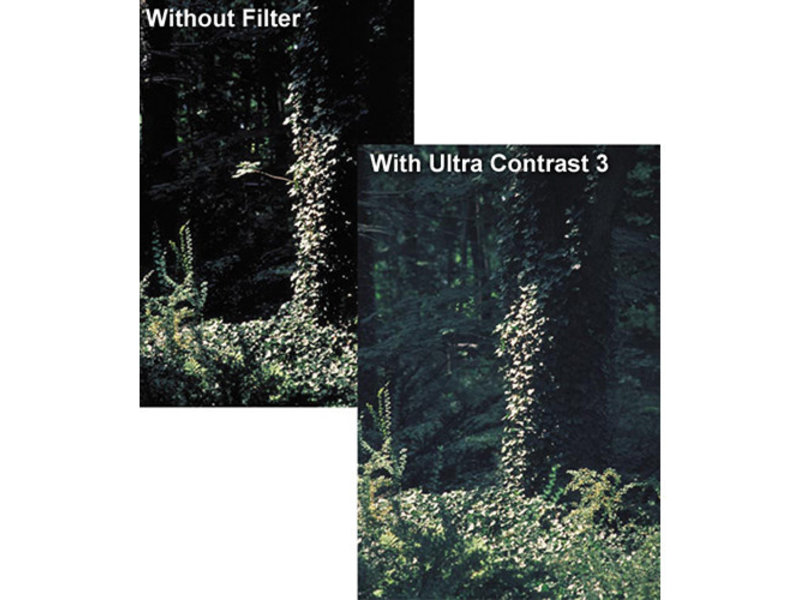6.6X6.6 ULTRA CONTRAST 5 FILTER - 6666UC5
The 6.6 x 6.6" Ultra Contrast 5 Filter from Tiffen helps to open your shadows by using the ambient light surrounding the image area as well as the light in the actual image itself. It lowers contrast uniformly throughout, with little or no loss of sharpness within the scene, even where there are varying degrees of brightness.
Shadow areas will reveal more detail but without any flare or halation from direct light sources or bright reflections. The Ultra Contrast works similar to a Tiffen Low Contrast filter with the difference being that it reduces contrast throughout the entire image whereas a Low Contrast filter will only open the shadows.
The #5 Ultra Contrast provides the maximum effect available for this filter. Shadows are now opened as far as they can go and contrast is as low as can be achieved with this filter. The image is still sharp and no flare or halation has been generated.
Tiffen's ColorCore glass is produced through a process that entails permanently laminating the filter material in between two pieces of optical glass that are ground flat to tolerances of a ten-thousandth of an inch, then mounting them in precision aluminum rings.






